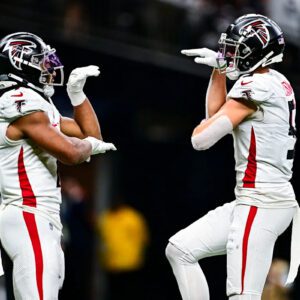Before his passing on July 19, 2000, at the age of 78, Allen Paulson, a prominent figure as an owner and breeder in the world of Thoroughbred racing, represented the realization of the American dream.
Born in Clinton, Iowa, he started earning his own living at the young age of 13 by distributing newspapers and performing cleaning duties. In 1937, he relocated to California and worked on a dairy farm while finishing his high school education. In 1941, he was hired as a junior aircraft mechanic, with an initial wage of 30 cents per hour.
From 1943 to 1945, Paulson served in the U.S. Army Air Corps. After the war, he obtained his pilot’s license and began flying commercially for Trans World Airlines. In 1951, he established his own company, initially trading in aircraft parts and later in used planes. His business flourished, leading him to acquire Grumman’s domestic facilities and offices for $52 million in 1978. Ultimately, he led the world’s largest manufacturer of private jets.
Paulson once confided in Jerry Bailey, a member of the Hall of Fame jockey, that his decision-making process was based on a risk-versus-reward analysis. While there are certainly risks involved in breeding and owning Thoroughbreds, Paulson quickly experienced the benefits after entering the sport in 1983 and investing generously. He managed breeding farms in Kentucky, Florida, and California.
The benefit? He received the Eclipse Award for outstanding breeder in 1993, as well as the award for outstanding owner in 1995 and 1996. His collective achievements were acknowledged with the highest honor, the Eclipse Award of Merit, in 1996.
Paulson is particularly recognized for his effective management of the renowned Cigar. Despite Cigar’s initial struggles as a grass horse, he excelled after being moved to the stable of Bill Mott, another Hall of Fame trainer, and transitioned to dirt racing.
Bailey remembers Paulson as an owner who sought expert assistance and then trusted them to carry out their duties. “He never interfered with the [pre-race] instructions at all,” Bailey mentioned.
As Cigar’s victories accumulated, eventually earning him the title of Horse of the Year in 1995 and 1996 and matching Citation’s 16-race winning streak, Paulson was primarily interested in understanding the horse’s true capabilities. There was no straightforward answer.
“My reply was ‘I don’t really know’ because I was always holding back a little,” Bailey explained. “I never pushed the horse to his absolute limit when he was performing at his best.”
One of the most challenging decisions Paulson had to make was whether to enter Cigar in the inaugural $5 million Dubai World Cup. The risk seemed considerable. Cigar would be required to compete on a surface significantly different from what he was used to. Additionally, the potential impact of the journey on him was unknown, as it was an unprecedented undertaking.
Following discussions with race organizers, Paulson committed fully. “He believed the reward – $5 million at the time – justified the risk of traveling halfway around the world,” Bailey stated.
Cigar’s triumph against a field of international stars further enhanced his legacy – as well as that of his strategic and daring owner.
Note: This story was published originally in 2019 and has been updated.
Fun Facts
- It has been reported that Paulson acquired Cigar in an exchange with his wife, Madeleine, for Eliza, the winner of the 1992 Breeders’ Cup Juvenile Fillies.
- He divested a 50% stake in Arazi, the 1991 European Horse of the Year, to Sheikh Mohammed bin Rashid al Maktoum for $9 million.
- In 1990, Paulson and his flight crew established 35 international records for circumnavigating the globe in a Gulfstream IV aircraft.
- He has been honored with various awards in the field of aviation, including: the Wright Brothers Memorial Trophy and the Harmon Trophy (both in 1987), the Howard Hughes Memorial Award (1988), and the Award for Meritorious Service to aviation (1994).
- His generosity to Georgia Southern University was so significant that the institution named its College of Science and Technology and a stadium in his honor.













